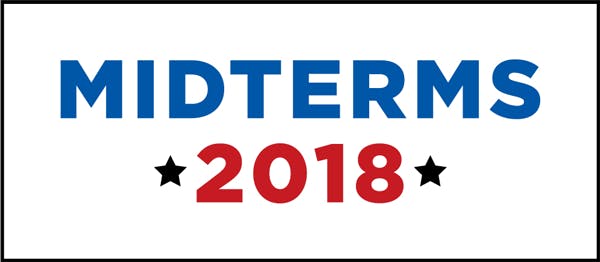Colorado voters won’t just be choosing elected officials when they go to the polls on Tuesday. They’ll be deciding, via a controversial ballot initiative, the future of the oil and gas industry in the state. Proposition 112 would require all new oil and gas development to be at least 2,500 feet from inhabited buildings and other “vulnerable areas” where it poses a risk to humans and the environment. According to one estimate, such restrictions could render 95 percent of land in the top energy-producing counties off limits to new drilling. That could really harm the economy, opponents say, since Colorado ranks among the country’s top oil and gas producers.
But Proposition 112 also could harm Colorado’s status as a swing state, or so the industry implies. To them, the measure—which would impact both traditional drilling and hydraulic fracturing, or fracking—is not so much an attempt to protect public health, but, as The New York Times put it, “a liberal effort to drive a working-class industry—and its conservative employees—out of the state for good.” As one worker told the paper, “The people that oppose this industry, they treat us as if we’re really evil. They want to ban oil and gas and chase us out of this state.”
Proponents insist that’s not the goal. “Our only concern is that massive toxic industrial drilling is currently happening 500 feet from our homes, and 1000 feet from our schools,” said Anne Lee Foster, a spokesperson for the environmental group Colorado Rising. She also argued there would still be plenty of work to go around if it passed. “There’s 55,000 active wells in the state that the proposition does not apply to at all,” she said.
Supporters do, however, see Proposition 112 as “a chance to put a progressive stamp on a purple state,” according to the Times. And the timing would certainly be good to make such a mark, said Scott Adler, who chairs the political science department at University of Colorado Boulder. Though Colorado is split in thirds among Republicans, Democrats and independents, he said, “We’re certainly going more blue than red in recent years.”
But would passing an anti-drilling measure such as Proposition 112 really drive conservatives out Colorado, ushering in a reliably blue Colorado?
State political observers roundly laugh at the suggestion. For one, Adler said, the economic impacts probably won’t be as severe as opponents claim. “There are lots of claims about what [Proposition 112] going to do,” Adler said. “But the idea that it would end drilling completely seems a bit far fetched.” Tom Cronin, a retired Colorado College professor who authored a book on Colorado politics, agreed. While some rural areas will certainly be negatively affected, he said, “The impact on the economy has been exaggerated.”
“I think this suggestion that conservatives might flee Colorado over 112 is silly,” said Diane Carman, a former veteran columnist for the Denver Post. “The only way that would be true is if the conservatives heavily invested in oil and gas development in Colorado are unwilling to adapt to new rules and itching to leave anyway.” It will certainly be more expensive to adapt to Proposition 112—to comply with the setback rule, companies will have to drill further horizontally underground to reach oil and gas reserves—but it won’t be impossible.
Even if conservative Coloradans do lose their oil jobs, Cronin still doesn’t think they’ll leave the state en masse. After all, he said, when Colorado’s Democratic Governor John Hickenlooper moved to the state in 1981, he was a geologist for an oil company—and immediately got laid off. “Instead of leaving and going back home, he founded another business,” Cronin said. “He’s now got 19 restaurants and beer pubs across the country.”
Polling shows voters almost evenly split on Proposition 112 heading into Election Day. If the measure fails, it will be a huge victory for the oil and gas industry, which spent more than $30 million trying to defeat it. If the initiative passes, it will be a win for public health and environmental advocates who want to keep drilling away from their communities. What it won’t be is a referendum on conservatism in Colorado.
“We’ve been consistent for 30 years now as to party registration figures, and this is despite the fact that millions of people have moved here,” Cronin said. “Colorado is purple. I think it’s going to be purple for a while.”

